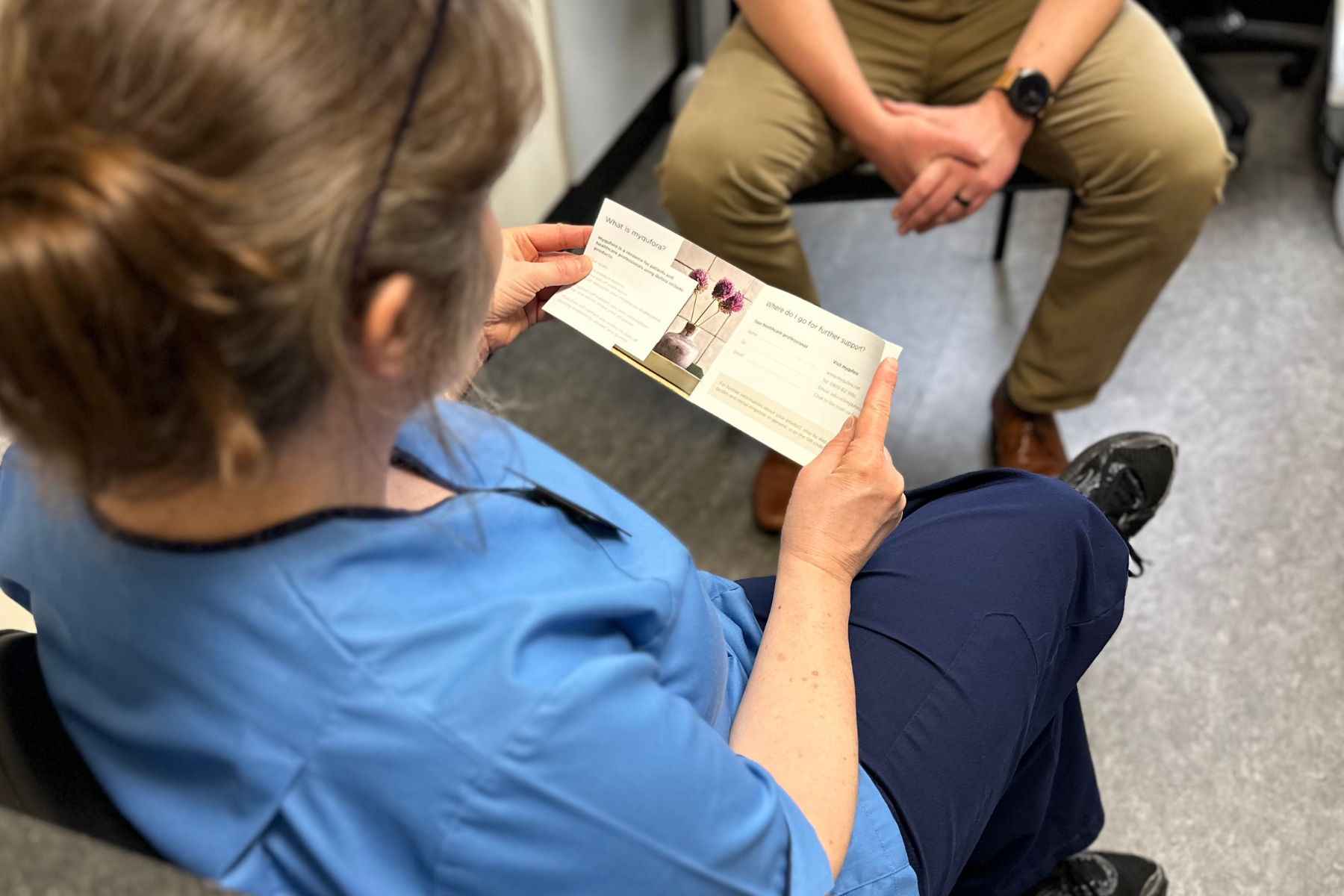Leanne Fielding and Pauline Little (Stoma Care Nurse Specialists, Aintree Hospital, Liverpool)
Leanne Fielding and Pauline Little (Stoma Care Nurse Specialists, Aintree Hospital, Liverpool) have taken an innovative approach to managing symptoms for some of their stoma patients, with fantastic results. Michelle caught up with them to hear more about how the introduction of low volume rectal irrigation is helping their patients.
Tell us about your service…
We are a nurse-led service, working closely with our Colo-rectal colleagues. Our patients have undergone surgery for bowel cancer or benign conditions, and many have stomas. Sometimes they experience problems with rectal discomfort, mucous build-up and incontinence of faeces or mucous.
Why did you start offering rectal irrigation?
Some patients were attending clinic every four weeks for a rectal washout to relieve their symptoms. We were looking for ways to increase our efficiency, post pandemic our waiting times have significantly increased, and also to streamline the patient journey. In January 2022 we introduced low volume rectal irrigation using Qufora IrriSedo MiniGo and MiniGo Flex in place of rectal washouts.
Here are our results….
Twenty-one patients have been taught low volume rectal irrigation so far. Thirteen (76%) of these patients continue to successfully irrigate once or twice per week. Nine of these patients have rectal stumps and 7 have a loop ileostomy. They no longer attend for regular rectal washouts. Irrigation enables them to evacuate the buildup of mucous and stool as it occurs, so rectal discomfort is relieved sooner, the incidence of incontinence has reduced.
Eight patients (38%) have stopped irrigating. The reasons for this are variable including non-adherence, rectal bleeding and irrigation being less effective than distal washout.
What benefits have you noticed from using rectal irrigation, for both the service and your patients?
Teaching rectal irrigation has given us a new set of skills and an extra treatment strategy in our ‘toolbox’ for bowel management. The Qufora products are straightforward to teach and easy for patients to learn how to use. We have significantly reduced the number of rectal washouts required (with accompanying cost savings) and this has freed up clinic time for other patients. We are also freeing up appointments in the healthy bowel clinics, where previously these patients would have been referred to learn irrigation. Patients can be taught irrigation straight away without the need to be referred to another clinic, thus streamlining their journey.
Patients feel empowered to independently manage their symptoms, increasing their confidence. When they feel uncomfortable, they can irrigate. This is so much more convenient than waiting for their next rectal washout appointment. Less hospital appointments saves them time, travel costs and absences from work. We have noticed less incidence of proctitis, perhaps because irrigation uses water rather than enemas which some of our patients were using 2-3 times per week. Symptom relief with low volume irrigation allows our patients to go about their lives without worrying about unpredictable bowels.







